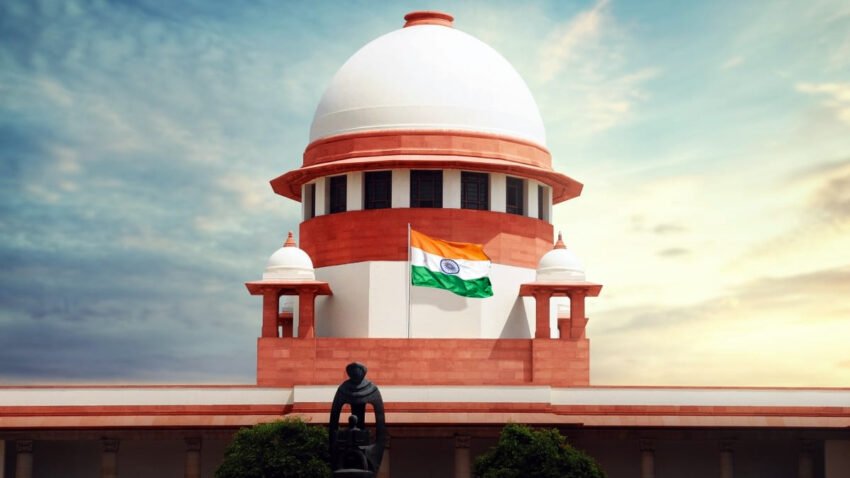News Date: 7 Apr, 2023, 1:06 pm IST
New Delhi: The Delhi Commission for Protection of Child Rights (DCPCR) has moved the Supreme Court supporting legalisation of same-sex marriages and conferring adoption and succession rights for same-sex couples.
In an intervention application filed before the top court on April 3, the child rights body extended its support to the batch of pleas already filed before the top court by various gay couples seeking legalisation of same-sex marriages.
The DCPCR by way of its application filed through advocate Abhishek Manchanda sought intervention to advance its arguments in the matter.
The DCPCR’s application underscored that adolescent homosexuals without requisite legal rights at par with heterosexual counterparts can lead to adverse psychological complexes, low self-esteem and other mental health issues.
“Unless equal rights are accorded to homosexual (persons), their acceptance, assimilation and legitimacy will remain under troubled waters. This again is bound to have its bearing upon adolescents,” the application said.
Hence, the application specifically batted for adoption and succession rights for same-sex couples, stating that the existing legal framework can be interpreted in a manner so as to accommodate such rights of same sex couples.
Further, non-recognition of same-sex marriages can have repercussions on children of homosexual persons, it was stated.
“The said person shall be the only de jure parent and guardian of his or her child. While the child may actually be under joint custody and maintenance of two persons consisting of a homosexual couple performing equal duties, only one of the persons would have de jure authority and rights. This could have psychological and emotional consequences not only for the affected de facto guardian but also for the child who may be left with reduced choice in case of a rift or separation between his de facto guardians,” the application said.
By depriving the legal status to homosexual marriages, the State would be denying the legal security of dual parenthood and guardianship to the child, it was underscored.
The child would thus be deprived of a legally recognised family and same would also have consequences for intestate succession, it was stated.
Further, such recognition would not dilute protections in gender-specific laws, it was explained.
“It is not as though the entire artifice of gender-specific laws would crumble by the recognition of non-binary gender identities and their inclusion into the folds of marriage and family laws.”
Legalisation of same-sex marriages is no cause for concern when it comes to adoption and succession rights, the DCPCR emphasised.
“It is respectfully submitted that when it comes to questions of adoption and succession, and the rights of children under the existing legal framework, the legalisation of same-sex marriage is no cause for concern; existing legislative language can accommodate same sex marriages, and ensure that the same rights that accrue to children in the context of heterosexual marriages, also accrue in the context of same-sex marriages,” the application said.
Pertinently, the DCPCR stated that legislation ought to keep pace with social evolution.
“We cannot become frozen in time, nor can we allow mere vocabulary of existing legislation to hinder the realisation of fundamental rights. Legislation is not an end but a means towards achievement of human and fundamental Rights. Consequently, legislative vocabulary must rather follow than direct the course of the development of rights.”
Importantly, the plea said that after the Supreme Court’s 2014 judgment in NALSA case, which recognised Transgender persons as a third gender, there is a duty on the State not to discriminate against homosexual persons.
“In the National Legal Services Authority, supra and the ensuing Transgender Persons (Protection of Rights) Act, 2019 a duty has been cast upon the State not to discriminate. If this duty can be effectively imposed for transgender/intersex individuals, the argument of complexities and challenges in adapting the gender-specific legislations to accommodate same sex marriages, and the rights of adoption and succession that flow therefrom, does not hold,” the application stated.
The application, therefore, asked the Supreme Court to consider passing the following directions:
– Central and State governments to take steps to create public awareness that same-sex family units are as “normal”, and children belonging to the former are not “incomplete” in any way;
– School boards and educational institutions proactively undertake such normalisation specifically in classroom contexts when issues touching upon same-sex family units are brought up;
– Education boards check and eliminate homophobic content in school textbooks; rewrite or re-envisage passages, caricatures, diagrams and references to family to include more diverse understandings
– Creation of dedicated helplines, resources towards psychological assistance and infrastructure for children of same-sex couples facing stigma or bullying
The application was drawn by advocates Nisha Tomar, Gautam Bhatia, and Abhishek Manchanda.



